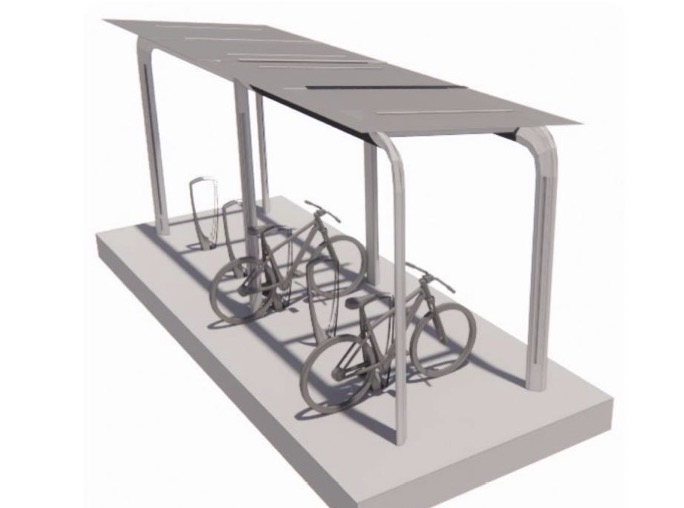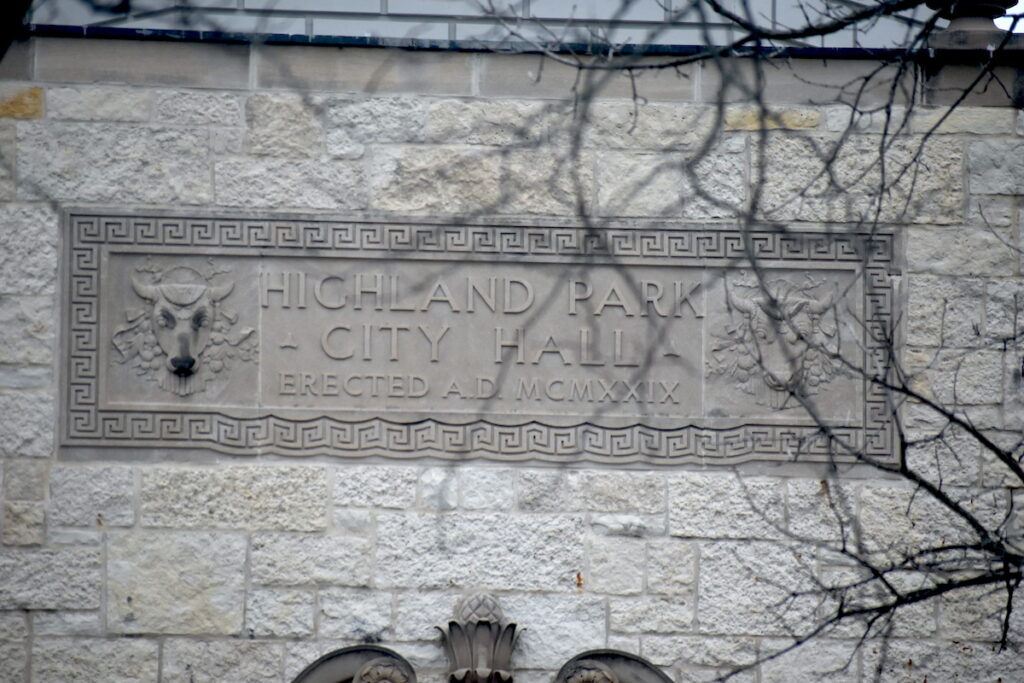
Highland Park clears way for Ravinia bike shelter
A bike shelter is coming to Highland Park’s Ravinia district. How and when, though, is still undetermined.
The Highland Park City Council passed on Monday, July 17, an ordinance to build a Ravinia bike shelter but the council would like to review more options before choosing a design.
According to the agenda packet, the funds for the structure will come from the Ravinia Tax Increment Financing District, not the City’s general fund.
The recommended bike shelter was “simple and sleek” and would fit 10 bikes and feature five bike racks, a roof, lighting at night and no sides. Council members, though, opted to table specifics to a later date.
Council Member Kim Stone cited financial concerns for the recommended bike shelter. She said that it was too small of a project for a cost of more than $100,000. She advocated that a larger bike shelter would be a more effective use of budget money.
Councilmember Andrés Tapia expressed concerns about a single bike shelter in Highland Park and suggested installing bike infrastructure in other parts of town as well.
“From a systemic perspective, we’re trying to create a bike-riding culture, and for us to do a shelter there and not have one at the Highland Park Station or even Braeside, then we kind of have a hodge-podge,” Tapia said. “It doesn’t create a lifestyle and a system.”
Tapia said he is a cyclist and so are other council members, and he thinks it is important to have reliability in terms of bike storage.
The vote passed 6-1, with Council Member Annette Lidawer voting no.
Lidawer said she prefers bike racks to shelters as they fit more bikes and cost less.
“I’m not sure why it has to be a full shelter in the other areas,” Lidawer said. “We could just put in 20 racks there.”
Highland Park limits gas leaf blower usage and sets table for full ban by 2027
Highland Park council members also approved an ordinance to shorten the period in which the use of gas-powered leaf blowers is permitted.
Gas-powered leaf blowers were allowed for 32 weeks throughout the year, but with the council’s approval on Monday, June 17, the devices can only be used during fall clean-up season (Oct. 1-Nov. 30) and the spring clean-up season (April 1-30).
The ordinance, which passed unanimously, mimics a nine-month ban passed in several North Shore communities over the past year.
The revised ordinance allows gas-powered leaf blowers for the 12-week period in 2024, 2025 and 2026. A full ban on gas-powered blowers is slated to start in 2027, with the exception of maintenance on golf courses.
The council’s Committee of the Whole will be required to review the regulations in 2026. If the council takes no further action, the ban will remain in effect in 2027.
Council Member Stone thought a three-year extension was fair to leaf blower businesses as to allow them to transition to electric machines. She also emphasized the environmental ramifications of gas-powered leaf blowers.
“We do need to cut our greenhouse gas emissions in half as a nation by 2030, so this would make a big difference because these are two stroke engines that are a lot more polluting,” Stone said.
She was in favor of the ban going into effect in 2026, which did not come to pass.
Mayor Nancy Rotering said the council will enforce a full ban starting in 2027, pending economic and environmental factors that the council will discuss in 2026.
The Record is a nonprofit, nonpartisan community newsroom that relies on reader support to fuel its independent local journalism.
Subscribe to The Record to fund responsible news coverage for your community.
Already a subscriber? You can make a tax-deductible donation at any time.

Rosie Newmark
Rosie Newmark is a 2023 Record intern and an incoming senior studying journalism and history at Northwestern University. Rosie has written for multiple campus publications in addition to the Hyde Park Herald and American Libraries Magazine.


